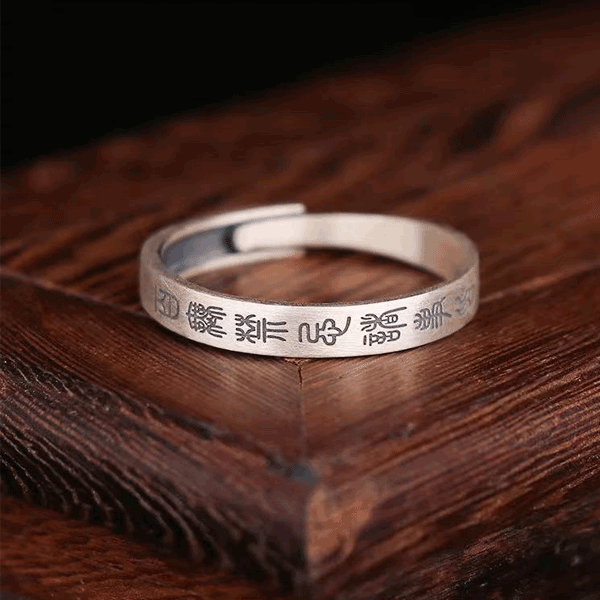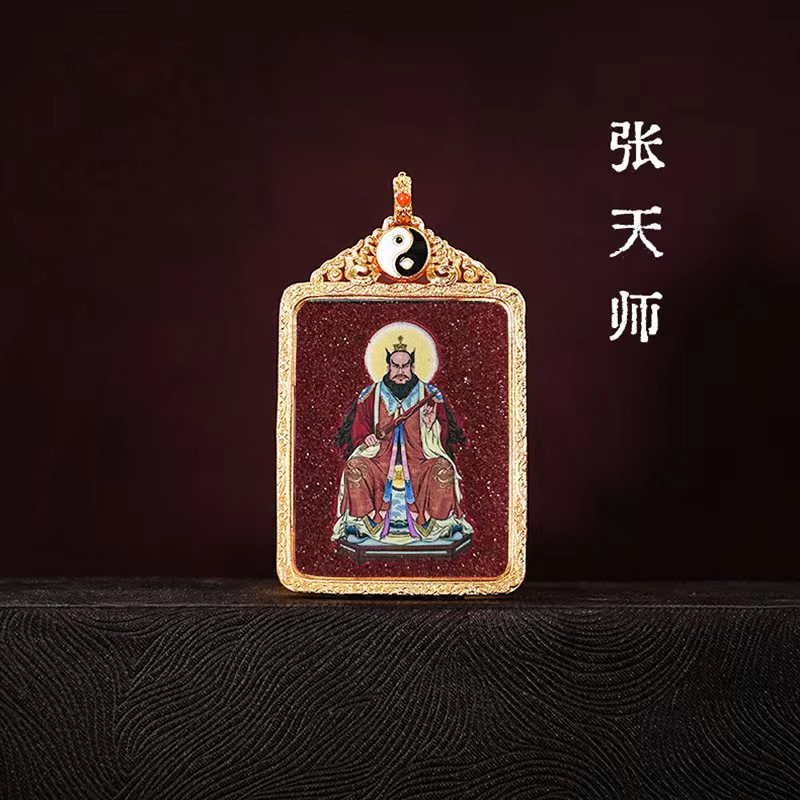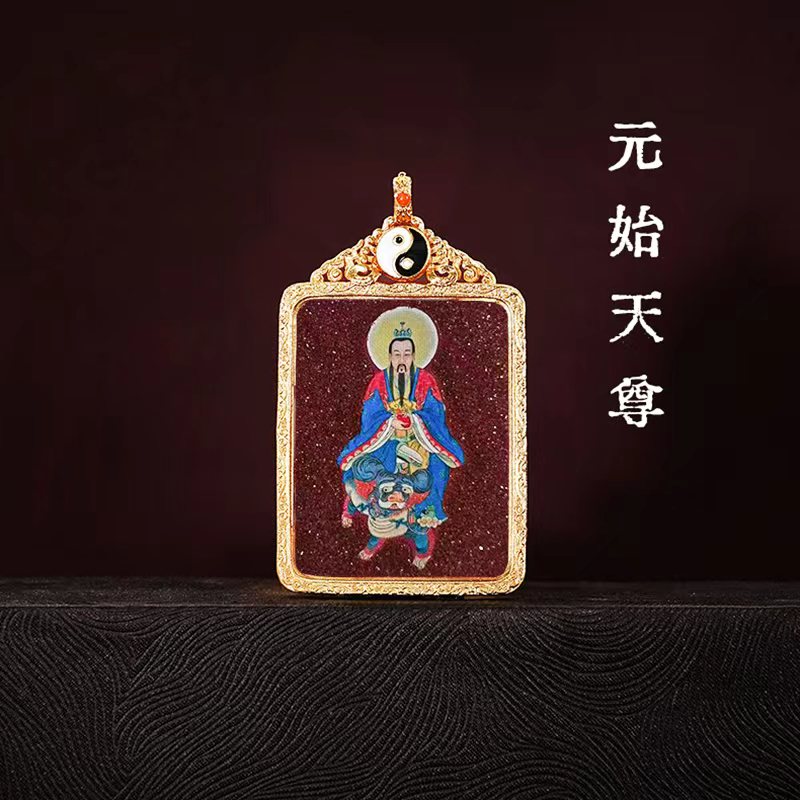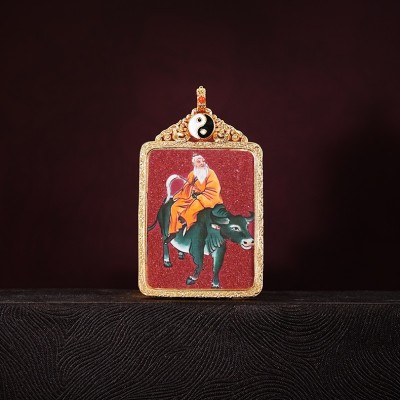Taiqing Daode Tianzun: The Incarnation of the Tao and the Patriarch of Taoism
Taiqing Daode Tianzun, often reverently called Taishang Laojun, is the third of the "Three Pure Ones," the highest deity in Taoism. He resides in the third level of the Three Pure Ones Heaven—the Realm of Great Purity. He is the most direct and widespread manifestation of the Tao on earth. He embodies both cosmic laws and is the founder of Taoist doctrine, revered as the Patriarch of Taoism.
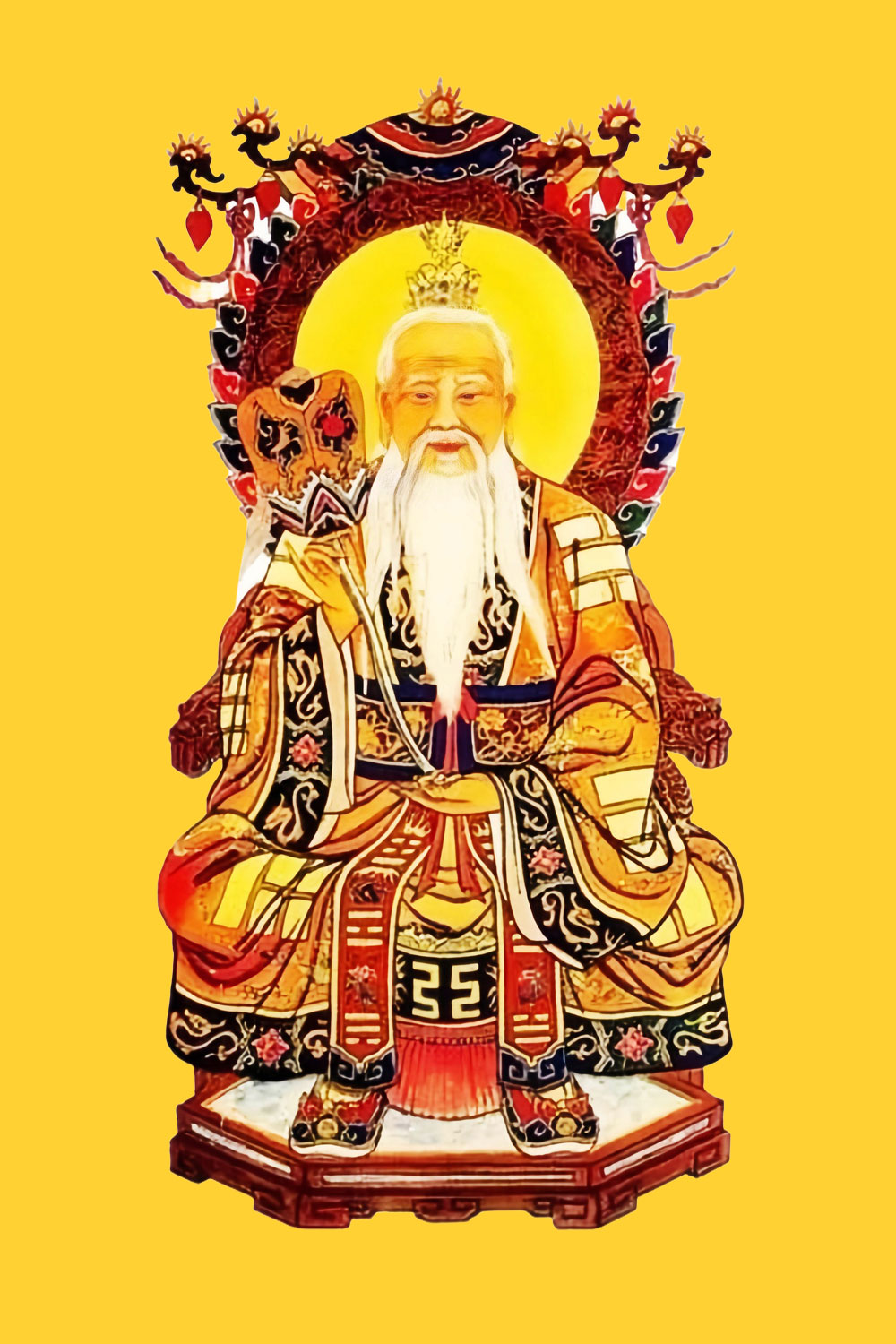
Taiqing Daode Tianzun
I. Identity and Status
The Last of the Three Pure Ones, the Incarnation: Daode Tianzun is ranked last in the order of the Three Pure Ones. This does not indicate a low status, but rather symbolizes that he represents the final stage of the Tao—incarnation and manifestation. He transformed from the invisible Tao into a tangible being, personally descending to the human world to teach and enlighten all beings.
The Incarnation of the Tao: Daode Tianzun exemplifies the Tao becoming flesh. His most famous incarnation is the Spring and Autumn Period philosopher Laozi (Li Er). The Daodejing, written by Laozi, is considered the highest scripture of Taoism. This transformed Daode Tianzun from a lofty philosophical deity into a relatable and respectable founder with historical records and handed down works.
Leader and Patriarch: Due to his unity with Laozi, Daode Tianzun is revered by all Taoist sects, especially within the Danding sect (which focuses on alchemy and cultivation), where he is considered the founder.
Ⅱ. Names and Symbolism
Taiqing: Refers to the heavenly realm where he resides and symbolizes purity and inaction.
Daode: This name is directly derived from the Daodejing.
- "Dao": Represents the origin and laws of the universe.
- "De": Represents the behavior and character that follow the Dao.
- Taken together, "Daode" means that he is both the Dao itself and the highest example of "De".
Taishang Laojun: "Taishang" means supreme; "Lao" is a respectful title, implying antiquity and timelessness; "Jun" means ruler. This title, imbued with both intimacy and awe, is the most commonly used designation among the people.
Image and Symbolism:
The image of the Lord of Dao and Morality is the most humane, often depicted as a wise elder with white hair, a kind face, and a feather fan in hand. His most iconic symbols are:
The Eight Trigrams Furnace: Symbolizes his control over alchemy (including the Huangbai technique of external alchemy and the cultivation of internal alchemy), his ability to refine and transform, and enlighten sentient beings.
The Diamond Cutter (or Ruyi): Appearing in literary works such as "Journey to the West," it symbolizes his boundless magical power and ability to control all things.
The Blue Ox: His mount. Laozi rode a blue ox when he crossed the Hangu Pass to the west, and the blue ox became the symbol of the Lord of Dao and Morality, representing his mission to spread the Great Dao and enlighten the West.
III. Core Duties and Responsibilities
The Lord of Dao and Morality's responsibilities are vast, encompassing everything from maintaining cosmic order to personal cultivation and attaining immortality.
1. Teaching in accordance with local circumstances and educating sentient beings
This is the Lord of Dao and Morality's most core responsibility. He did not reside in the heavens, but instead continuously descended to the human world, establishing teachings tailored to the characteristics of different eras and regions.
Transmission of the Daodejing: His most famous teaching was his incarnation as Laozi, who penned the 5,000-word Daodejing, laying the theoretical foundation for Taoist thought and religion. This classic expounds the fundamental principles of the universe, politics, life, and cultivation.
Experiencing tribulations and saving people: Echoing Yuanshi Tianzun's opening of tribulations and Lingbao Tianzun's mitigation of tribulations, Daode Tianzun was responsible for guiding and educating sentient beings during tribulations, teaching them methods for seeking refuge and cultivating immortality.
2. Dominating Alchemy and Cultivation Methods: Daode Tianzun is revered as the ancestor of alchemy.
External Alchemy: Legend has it that the Eight Trigrams Furnace could refine the elixir of immortality. Ancient alchemists and Taoists, when practicing alchemy, revered Daode Tianzun as their ancestor.
Internal Alchemy: With the development of Taoism, external alchemy gradually evolved into internal alchemy. Internal alchemy uses the human body as a cauldron to cultivate essence, energy, and spirit. Daode Tianzun's "Tao Te Ching" is considered the highest guiding principle for internal alchemy practice. Key principles include "wuwei," "maintaining unity," and "emptiness and tranquility," which are core principles of internal alchemy.
3. Transforming All Things, Endlessly Changing
According to the Taoist classic "Taishang Laojun Kaitian Jing," Daode Tianzun participated in the creation and evolution of the universe. After Yuanshi Tianzun opened a new era, Daode Tianzun was responsible for giving form and life to all things. He possesses the characteristics of "responsiveness and omnipresence."
4. As the Imperial Teacher and God of Culture
Because Laozi served as the "Keeper of the Treasury" (director of the National Library) during the Zhou Dynasty and possessed profound knowledge, Daode Tianzun is also considered the patron saint of wisdom and culture.
He is often portrayed as the imperial teacher who taught ancient sage kings (such as Emperor Huangdi) the art of governing.
He is also revered as the ancestor of certain professions (such as blacksmiths and kiln workers), reflecting his symbolic control over the "furnace fire."
IV. Summary of the Relationship with Yuanshi Tianzun and Lingbao Tianzun
The division of labor among the "Three Pure Ones" can be summarized using a simple metaphor:
Yuanshi Tianzun (Yuqing): Like a company's founder and chairman. He comes up with the fundamental idea (Tao) and establishes the company's existence, but does not directly manage day-to-day affairs.
Lingbao Tianzun (Shangqing): Like a company's chief executive officer (CEO) and public relations director. Based on the chairman's blueprint, he formulates specific operating rules, product manuals (scriptures), and external aid plans (saving people), establishing a system to benefit all living beings.
Daode Tianzun (Taiqing): Like a company's chief engineer and chief trainer. He personally works on the front lines, developing core technologies (alchemy/cultivation), writing training materials (Tao Te Ching), and personally teaching employees (living beings) how to master skills and complete tasks (attaining the Tao and becoming immortal). He is the deity closest to ordinary employees and customers.
Summary:
Taiqing Daode Tianzun is the most approachable of the "Three Pure Ones" and the deity most closely connected to human history and culture. He is not only a symbol of the laws of the universe, but also a mentor who transforms the profound Dao into understandable and practical wisdom. For Taoists, he is the founder of alchemy and immortality; for ordinary people, he is the source of the wisdom of the Tao Te Ching. He represents the practicality and universality of the Dao, and serves as a crucial bridge in the transition of Taoist belief from philosophy to religion, from the sacred to the secular.

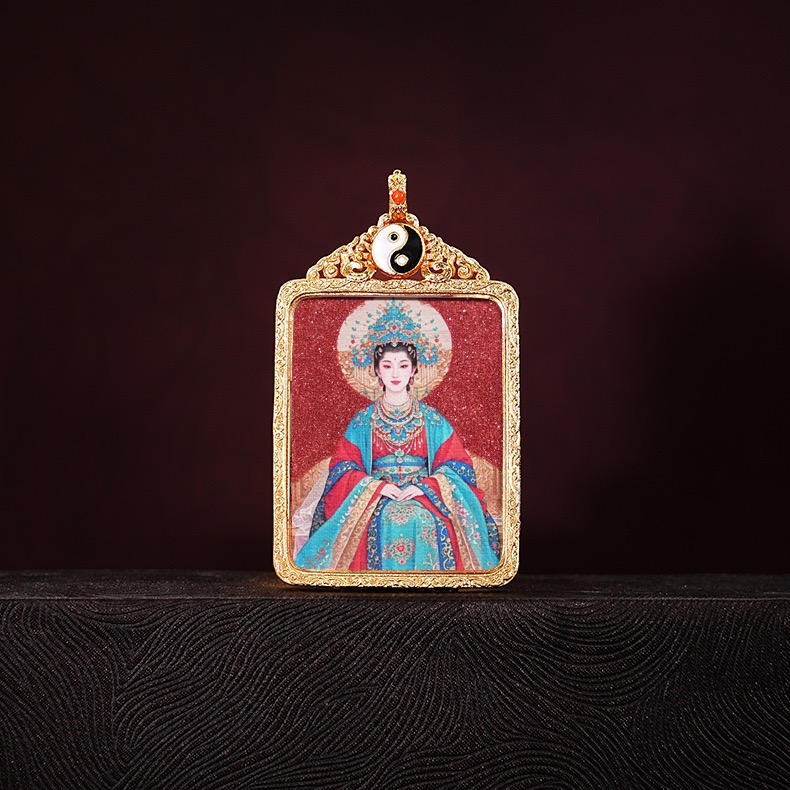
.webp)
